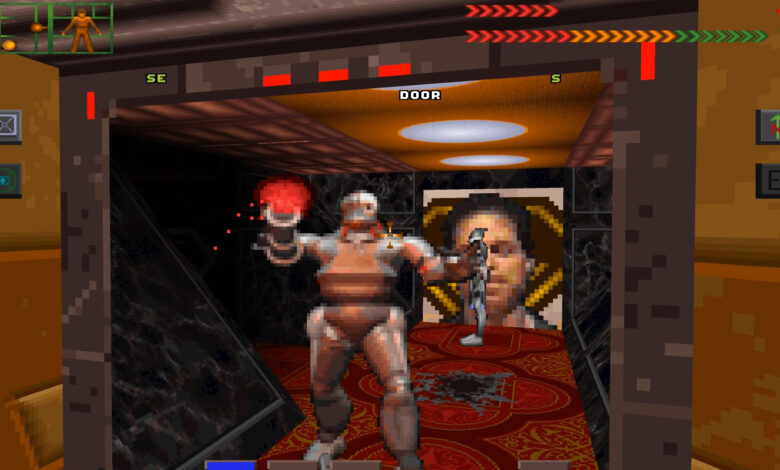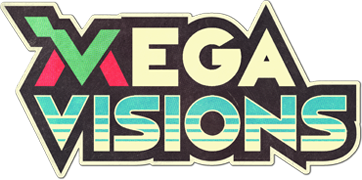How System Shock helped define the modern FPS
System Shock had a major influence on the FPS genre thanks to its storytelling, level design, and focus on exploration.

Sometimes, it feels wrong to call a game (or anything, really) influential. Just about any piece of entertainment can influence you, really, and pinpointing one or two titles that specifically changed an industry is a tall order. Yet there are sometimes clear examples of a game that directly altered the course of a burgeoning genre. The perennial 1994 classic System Shock is one such example, thanks to its major influence on the FPS genre.
Developed by Looking Glass Studios, it marked a turning point in how the industry would perceive shooters. Other games like Wolfenstein 3D and DOOM helped shape the basic mechanics and how games would operate. System Shock took that foundation and made the next step toward intellectual storytelling and exploration — elements that would become industry standards.
The FPS genre has changed quite a lot over its history, and many of its modern quirks and design staples that we take for granted originate from System Shock. Let’s look at how this game changed the course of first-person shooter history as the upcoming remake nears its release date.
Welcome to Citadel Station, insect

One of the primary ways System Shock has influenced first-person shooters is in its emphasis on exploration and examining your surroundings. In this game, you play as a hacker making your way through the bowels of Citadel Station, overrun by monsters created by the rogue AI SHODAN. Your main objective is given to you right away; you’re thrown right into the action and left to figure out everything for yourself.
It should be clarified now: System Shock is not a shooter in the traditional sense. It’s more of a first-person adventure game where attacking enemies is secondary — but no less a critical part of the experience. This was one of the earliest titles to blend the straightforward action of DOOM with the exploration and set-dressing of games like Looking Glass’s Ultima series. You can see a lot of that influence today; nowhere is it more clear than in games like Deus Ex, BioShock, and Prey — all spiritual successors to System Shock which blend FPS conventions and adventure game mechanics.
In a broader sense, System Shock is still more or less a level-to-level shooter. While it’s not as segmented as the maps of DOOM and Wolfenstein, you still have a unique design for every single floor of the station. The difference is in how each floor is presented; the sprite sets and music give each level a unique look and feel. It’s not as holistic as later shooters that feature an unbroken world, but it is a significant stepping stone away from the “load the next level” trappings of the past.
Expand your dimensions

Sure, in a technical sense, Wolfenstein and DOOM already started the 3D platformer. Yet, for the most part, those games lacked in vertical depth and angles.
System Shock bucked that burgeoning trend (which was more of a limitation than a deliberate design choice) to create a true 3D FPS. Sure, the enemy sprites and textures still feature wonderful 2D artwork. But look at how the levels scale vertically rather than just sticking to the same Y-coordinate.
Platforming wasn’t necessarily a part of shooters before this game, but System Shock introduced a few mechanics from that genre. Not to a huge degree, but enough to help it stand out. You don’t just have a jump button in this game, for example. You can find the jump jet upgrade to essentially hover and float to reach brand-new heights.
Need we mention the Cyberspace sections? A full year before Descent, another highly influential early FPS, System Shock crafted a six-degrees-of-freedom mechanic where you’re moving and shooting in a fully three-dimensional environment.
In 1994, with this game’s less-than-perfect financial success, you could argue that all this would just result in a fluke. Given how saturated the FPS market is now, that argument rings incredibly hollow.
Logging on

Back in the early ’90s, you’d be hard-pressed to find a detailed story in a shooter. Most revolved around the simple idea of “here are bad people, point gun at bad people and fire.” And that worked for a while, but as with any genre, you begin to wonder whether or not it could evolve further.
System Shock pumped a heavy bit of story into the FPS veins, and it hasn’t looked back since. For a lot of players, this title proved that you could tell an engaging story through the lens of a shooter.
Which is incredible since you almost rarely directly interact with anybody in this game. This was one of the first games to tell its story chiefly through audio logs left behind for the player to find. Through these logs, you piece together exactly what happened to turn Citadel Station into a wasteland. But you also get a lot of small details with these logs; little pieces of storytelling that can’t exactly be told in a setting without any characters to talk to.
Audio logs are a dime a dozen nowadays when it comes to FPS storytelling mechanics, but System Shock reminds us just why they work so well. It lets you learn alongside the player character and keep the action moving while you absorb all the story details. That’s a perfect melding of story and action in a genre that most associate with pure adrenaline and spectacle.
Play the FPS revolution again in the System Shock remake

It’s not unfair to say that without System Shock, the FPS landscape would look vastly different than it does today. It isn’t the sole pillar that the genre rests upon now, but it is undoubtedly a critical one thanks to its attention to setting and exploration, true 3D level design, and story-driven design.
You’ll be able to experience all the ways System Shock helped redefine the FPS genre once again this year. Nightdive Studios is currently finishing up work on the remake, which has been in development for a long time but is finally on the verge of release.
The System Shock remake is developed by Nightdive Studios and published by Prime Matter. It will launch on May 30, 2023 for the PlayStation 4, PlayStation 5, Xbox One, Xbox Series X/S, and PC / Mac / Linux via Steam, Epic Games Store, GOG.com, and Humble Bundle. In the meantime, you can download and play the demo on PC now.
What are your thoughts on System Shock’s influence? Let us know!

